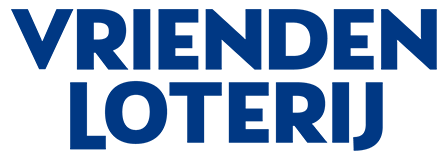The Eredivisie, with its 18 clubs, showed strong growth in social impact during the 2022/2023 season, with no fewer than 168 projects involving more than 110,000 Dutch people. All this was made possible by an investment of more than €5.5 million, representing an increase of almost €1 million compared to the previous season. Not only did the budget grow, the number of projects increased this season as well, going from 153 to 168. This is according to the Eredivisie’s social impact report for the 2022/2023 season, developed in collaboration with Utrecht University.
The social impact report will be officially presented tomorrow at the ‘More than Football’ conference, organised by the Eredivisie in collaboration with the European Football for Development Network (EFDN), where representatives from the world of football and society come together to celebrate the power of sport in society. ‘For clubs in professional football, creating social value is becoming an increasingly important part of their strategy and policy. Our research shows that job numbers and project budgets have grown markedly compared to last season. The reach of the projects is also increasing. Utrecht University is happy to contribute to the (professional) development of social value creation in professional football,’ says Utrecht University researcher Jan-Willem van der Roest.
Commitment of players up sharply
The players’ commitment is also notable. The dedication of socially engaged players is essential. With a commitment of 1,311 hours, up 15% from last season, players were used as role models in various projects. ‘This is the beautiful side of football. It is great that players are so committed to social engagement. They are so important to our projects and can really make a difference. They literally and figuratively get people moving. A name and logo work wonders!’ says Jan de Jong, Director Eredivisie CV. By the way, what is also noteworthy is that this year most of the financial support comes from the government and the clubs, a significant increase of more than 5% compared to last year.
Eredivisie bets heavily on health
Within the framework of corporate social responsibility, Eredivisie CV has identified three essential pillars: health, connection and sustainability. Firstly, the focus is on health, with sport acting as a powerful tool to raise awareness about healthy lifestyles, including nutrition and exercise. Research shows that only 18% of children achieve the exercise standard, and exercise poverty in general is a growing social problem. To capitalise on this, no fewer than 49 out of 168 projects were dedicated to vitality in the 2022/2023 season, with the participation of more than 45,000 individual participants.
Social engagement: from training to bringing communities together
Besides creating awareness about healthy lifestyles, the Eredivisie also does a lot to unite people, fight discrimination and give everyone a place. Football also helps shape who we are and how we fit into society. The Eredivisie has several projects to support this. As many as 14 projects focus on labour reintegration, and another 26 on skills and training, including the ‘Community Champions’ social service programme, organised in collaboration with the European Football for Development Network (EFDN). Research shows that meeting new people is particularly impactful. Participants perceive engaging with diverse groups as the most valuable experience.
‘Football unites millions of people, regardless of their background. We believe in the unique power of football to inspire people to adopt healthier lifestyles and promote sustainable behaviour, while we continue to provide opportunities. Together with our clubs, partners and supporters, we continue to work passionately to increase our positive social impact,’ De Jong says. In doing so, the Eredivisie remains ambitious. ‘Our goal is to teach individuals life skills, provide perspectives for a better future and promote a healthier and more vital life. At the same time, we focus on increasing the liveability of our cities and regions, and nurturing pride among our communities.’
New: measuring ecological footprint
The Eredivisie CV focuses not only on social projects, but also on sustainability. By way of example, the Eredivisie, in collaboration with the KNVB, mapped the ecological footprint of professional football in the 2022/2023 season with baseline measurements, including mobility, energy, materials, waste, water and food and drink. Recent surveys show that sustainability is an increasingly important issue for stakeholders, including supporters, partners and the government.
The complete report can be found here (in Dutch).
Read more








